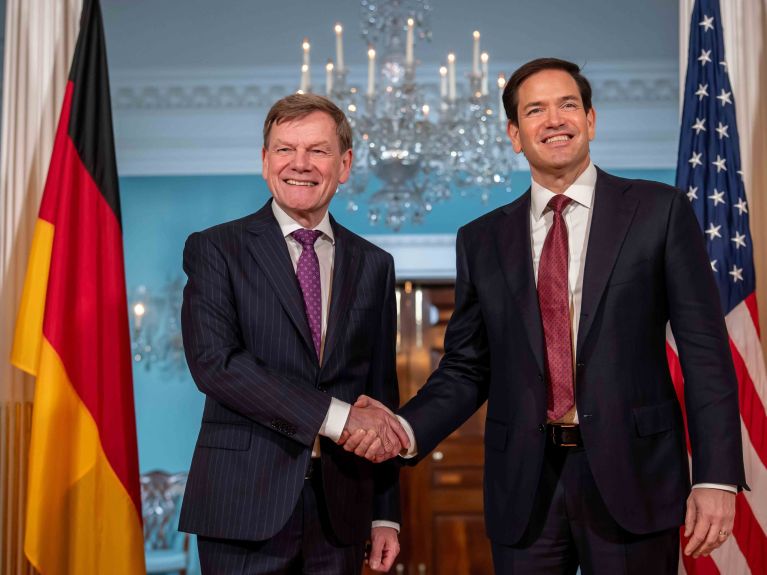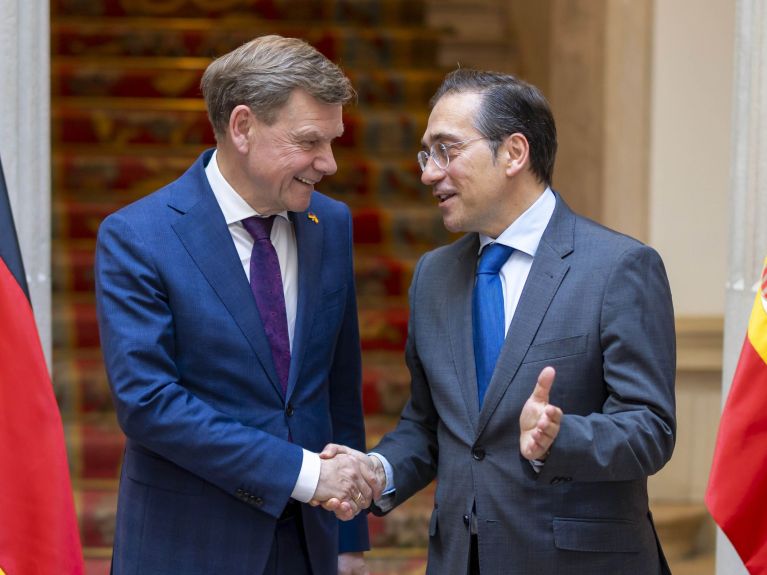German foreign policy in troubled times
After just a few weeks in office, Foreign Minister Johann Wadephul has already set the tone in a challenging global situation.

Barely confirmed in office, new German Foreign Minister Johann Wadephul has already travelled halfway around the world: He has been in Paris, Warsaw, Lviv and Jerusalem, met partners in London, Antalya, Madrid and Lisbon, visited his US American counterpart in Washington – and has also received numerous guests of state in Berlin. In troubled times where we face major challenges, Wadephul is signalling that Germany wants to make its foreign policy even more visible.
Affirmation of the NATO goals
At the NATO meeting in Turkey, Wadephul said: “Germany is determined to make this alliance stronger.” Germany intends to honour the 3.5 per cent direct defence contribution proposed by NATO General Secretary Mark Rutte and additionally provide around another 1.5 per cent of its GDP in terms of developing military infrastructure.
New tack: Strategic ambiguity
Wadephul is also making waves in policies on Ukraine. During his visit in Lviv, he said: “We will provide whatever is necessary, and provide it for as long as necessary.” In a speech in the Bundestag he called on the Russian President to return to the negotiating table: “The ball is very much in Mr Putin’s court.”
Wadephul is pursuing a new line of strategic ambiguity – including in the supply of weapons to Kiev. When asked in a newspaper interview about the supply of Taurus cruise missiles, he replied: “We no longer want to be predictable and are keeping all options open.”

Constructive China policy
Wadephul adopted a diplomatic stance in relation to China. After a phone call with China’s Foreign Minister Wang Yi, he spoke of China’s “responsibility for global peace” and reaffirmed Germany’s commitment to the One China policy. Germany is adhering to a constructive policy towards China based on common rules and multilateral cooperation.
Plea for a two-state solution
In Israel, Germany’s Foreign Minister called for a return to serious negotiations on the Gaza war and criticised the humanitarian blockade. At the same time, he renewed the assertion for a two-state solution. It is seen as “the best option for peaceful coexistence, security and dignity for both Israelis and Palestinians”.
He also indicated a new tack in policy regarding Syria. After the lifting of EU sanctions, Wadephul declared: “We are thus giving the Syrian government an opportunity, but we also expect a policy of inclusion.”
Intensification of partnership with India
Germany’s partnership with India is to be raised to a new level. On the occasion of a meeting with the Indian Foreign Minister in Berlin, Wadephul said: “We are in agreement: Peace and stability in the Indo-Pacific are closely linked with peace and stability in the European Atlantic area.” What counts is closer cooperation in business, skilled labour recruitment and security.


